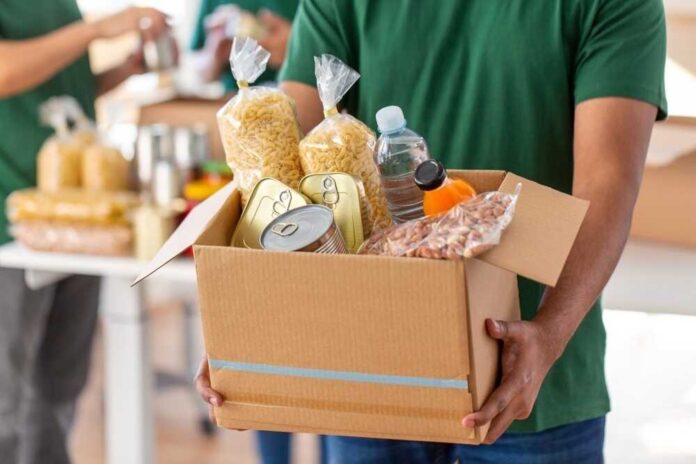
(DailyTreasure.com) – Millions of adults and children in the United States are food insecure. Food insecurity is the persistent lack of food because of economic circumstances that can lead to poor health. Families may feel they have no choice but to sacrifice food and nutrition for other expenses. However, they should know that government, community, nonprofit, and faith-based organizations can help them provide nutritious food for families in need.
1. Supplemental Nutrition Assistance Program (SNAP)
The SNAP program, or the Electronic Benefit Transfer (EBT) program, is a federal initiative offering monthly funds to purchase food. This program can provide families with nutritious food while allowing them to allocate the household budget toward other needs like medical, utilities, or housing expenses.
It can take up to 30 days to start receiving funds. Special circumstances can have families start receiving SNAP benefits within seven days of applying.
2. Women, Infants, and Children (WIC)
WIC is also a federal program that provides grants to states that offer supplemental foods, health care referrals, and nutritional education to low-income pregnant, breastfeeding, or non-breastfeeding postpartum women. Infants up to the first birthday and children up to age five will also receive these benefits if they are found to have medical-based or dietary-based conditions based on the lack of nutrition.
Families can contact their state agency to apply. Automatic income eligibility is considered if a family participates in other programs like SNAP or Medicaid. A WIC prescreening tool is available to see if families are eligible for WIC.
3. Child Nutritional Programs
The U.S. Department of Agriculture and other federal and state agencies provide a variety of programs that ensure children of all ages have access to dependable nutrition every day. Initiatives like school breakfast and lunch and summer food programs ensure children are fed all year round.
National School Lunch Program (NLSP)
This program provides federally assisted lunches that are low-cost or free to eligible families whose children attend public schools, nonprofit private schools, and residential care institutions.
School Breakfast Program (SBP)
The USDA reimburses states operating nonprofit breakfast programs in schools and residential childcare institutions. About 90,000 public and nonprofit private schools in the nation offer this program.
Child and Adult Care Food Program (CACFP)
Childcare centers, daycare homes, and adult daycare centers can be reimbursed for nutritious meals and snacks for eligible children and adults over the age of 60 or living with a disability who are enrolled in a daycare facility. This program also serves children residing in emergency shelters.
Summer Food Service Program (SFSP)
Children won’t be hungry when school closes. The SFSP compensates summer or community program operators who offer healthy meals and snacks to children and teens in low-income areas.
4. Food Distribution Programs
USDA’s food distribution programs get food to where it’s needed, either to people in need or emergency situations. Food distribution programs like the Commodity Supplemental Food Program (CSFP), The Emergency Food Assistance Program (TEFAP), the Food Distribution Program on Indian Reservations (FDPIR), and the Food Distribution Disaster Assistance Program (FDDAP) can help:
- Low-income impoverished people
- Older adults
- Low-income pregnant women, new mothers, infants, and children
- Native American families and older adults on or near reservations
- People impacted by disasters
In addition to the USDA reimbursing schools for breakfasts and lunches, they also buy and distribute fresh fruits, vegetables, and other food products to support school food programs and other Federal feeding programs.
5. Food Assistance Programs Offered By Nonprofits and Faith-Based Organizations
These food assistance programs are offered to anyone in need, regardless of whether you participate or are a member of these organizations. Families struggling with food insecurity can learn where community, nonprofit or faith-based food banks and pantries are in their area for assistance.
Families don’t need to sacrifice nutritious and plentiful food for other expenses. If you or someone you know is struggling to stretch their budget to include food to feed their families, learn that these government, community, nonprofit, and faith-based programs are there to provide nutritious food for those who need it.
Copyright 2023, DailyTreasure.com

















